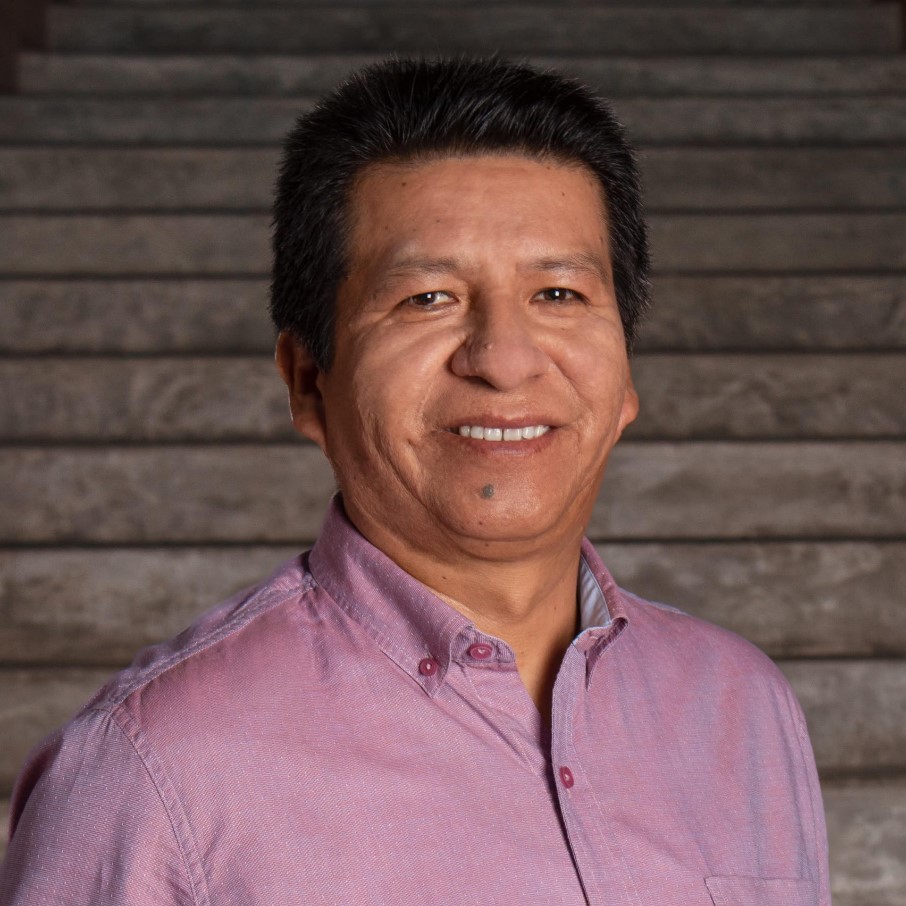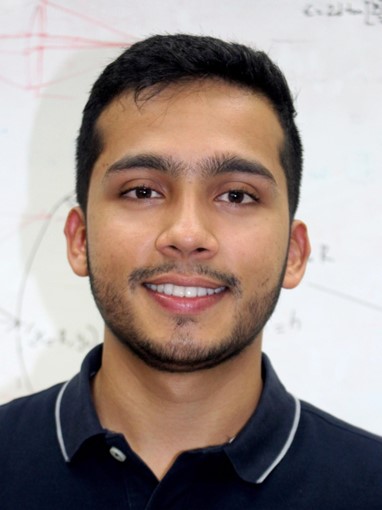
Dr. César Beltrán Castañón
Generative models for remote sensing applications
PhD in Bioinformatics and Master’s in Computer Science, both from the University of Sao Paulo (USP), Brazil; he completed a postdoctoral fellowship at Texas A&M University (USA). Currently, he is the President of the IEEE Peru Section (2023-2024), as well as a Full Professor and Senior Researcher at the Pontifical Catholic University of Peru. He is the founder and leader of the Scientific Group in Artificial Intelligence (AI-PUCP). He served as Past President of the IEEE Computer Society – Peru (2019-2020), where he is a Senior Member. He has an esteemed academic career at various universities both nationally and internationally and is a member of the AI Expert Commission of the Congress of the Republic in Peru.

Cesar Hernando Valencia Niño
Transforming Digital Pathology with Artificial Intelligence: History, Breakthroughs, Applications, Challenges and Future Directions
Systems Engineer from the University of Los Llanos, Master in Biomedical Engineering with a meritorious thesis, and Doctor in Engineering – Systems Engineering and Computing with Summa Cum Laude distinction from the National University of Colombia. He is currently an Associate Professor at the University of Los Llanos School of Engineering and an Associate Researcher categorized by the Ministry of Science, Technology and Innovation of Colombia (MinCiencias). He is the leader of the GITECX research group (Category C – MinCiencias) and coordinator of the Research Seedbed Automatic Data-driven Analytics Laboratory – AdaLab. His research areas include artificial intelligence and machine learning, data analytics, and computer vision applied to biological and biomedical data. He is the co-author of 2 US patents, 14 articles in scientific journals, more than 50 articles at conferences, and 14 developed projects on research, technological development, and innovation funded by the University of Los Llanos, MinCiencias, and of the Science, Technology and Innovation Fund of the General Royalties System. He has over 2,200 citations in Scopus and an H index of 12. His recognitions include the Young Scientists Publication Impact Award granted by the MICCAI Society Board in 2017, the leading international medical imaging conference, and the most cited article in the fifty years of the SPIE Medical Imaging conference in 2022.

Angel Alfonso Cruz Roa
Transforming Digital Pathology with Artificial Intelligence: History, Breakthroughs, Applications, Challenges and Future Directions
PhD in Bioinformatics and Master’s in Computer Science, both from the University of Sao Paulo (USP), Brazil; he completed a postdoctoral fellowship at Texas A&M University (USA). Currently, he is the President of the IEEE Peru Section (2023-2024), as well as a Full Professor and Senior Researcher at the Pontifical Catholic University of Peru. He is the founder and leader of the Scientific Group in Artificial Intelligence (AI-PUCP). He served as Past President of the IEEE Computer Society – Peru (2019-2020), where he is a Senior Member. He has an esteemed academic career at various universities both nationally and internationally and is a member of the AI Expert Commission of the Congress of the Republic in Peru.

Cesar Augusto Vargas Garcia
From Cells to Communities: Harnessing the Power
of Stochastic Systems in Modern Biology
Cesar Vargas, who earned his Ph.D. in Electrical and Computer Engineering from the University of Delaware, is based in Madrid, Cundinamarca, Colombia, and is a principal investigator at AGROSAVIA. Specializing in data analysis and mathematical modeling—from mechanistic to AI-driven approaches—Cesar focuses on biological and agricultural systems. His research includes studying cell size control in bacteria, fission yeast, budding yeast, algae, and microbial communities in livestock, aiming to improve our understanding of these processes and enhance agricultural productivity. He is dedicated to leveraging mathematical and AI-based models to develop descriptive and predictive tools, solving complex problems in the life sciences and driving scientific research.

Jorge Bacca Quintero
Smart Cocoa: AI-Driven Spectral Imaging for Fast Cocoa Bean Analysis in Colombia
Jorge Bacca received the B.S. and Ph.D. degrees from the Universidad Industrial de Santander (UIS), Bucaramanga, Colombia, in 2017 and 2021, respectively both in Computer Science. He is currently an Assistant Professor with the Department of Computer Science, UIS. In 2022 he obtained the Eloy Valenzuela award in the Consolidated researcher category. He is a Consulting Associate Editor for IEEE OPEN JOURNAL OF SIGNAL PROCESSING.He is the author of more than 20 journal papers and 30 proceedings conferences related to optical design. His research interests include inverse problems, optical imaging, and hyperspectral imaging.

